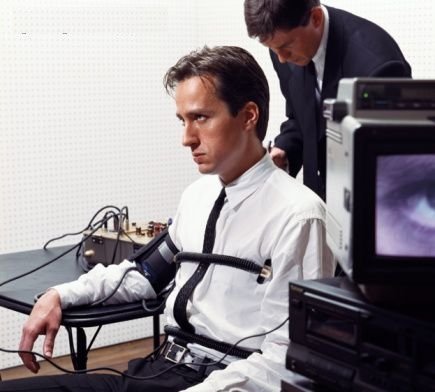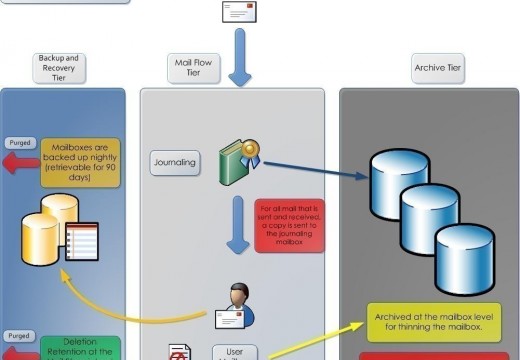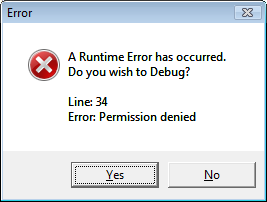The trick to beating a lie detector test is understanding how one works. A polygraph is a device that you are "hooked up" to in an effort to keep track of your pulse and your breathing. What a lie detector does is notice changes in one's breathing and heart rate depending on a question that is asked. For example, a person might lie about where they were the night before and the heart rate would increase or the breathing would change.
However, for the polygraph examiner to know that your heart beat or breathing has increased or decreased, they have to ask you some control questions. These are the questions that you have to pinpoint if you are going to beat a lie detector test. These types of questions are ones that are givens such as:
- What is your name?
- How old are you?
- What is your job?
- Are you married?
These are ones that the examiner will already know the answer to, so it is assumed you'll answer them correctly. You have to answer them correctly because if you try and lie through these, the examiner will know and call your bluff. Therefore, the only way to beat this portion of the test is to fake your breathing and heart beat. In other words, you are going artificially create a response to the control questions so that, while you are telling the truth with these questions, you'll have created a lie about how your body reacts to truth questions.
Beating the Lie Detector Test
When asked a question, think back to a time that was either very scary of very exciting in your life. At the same time, bite down on the side of your tongue so that it is not obvious you are doing it. The mixture of pain and the memory will cause your heart beat to increase. Therefore, when they ask, "Are you married," you'll bite down on the side of your tongue, think of something scary and then say, "Yes." Do this quickly, though. The heart rate will increase a little bit and the examiner will note this.
For every question, do this. Make it so that your heart rate goes up. Another way to do it is to take very short, shallow breaths. This forces your heart to increase the number of beats because it is trying to get more oxygen around the body. Therefore, as the examiner is asking a control question, begin to take shallow breaths and then answer the question. The heart rate will be elevated.
Now, the trick comes when they ask you a question and you go to lie. Answer the question with the lie using the exact same technique that you did above. Breathe a little faster so that it appears as if you are answering honestly. If your heart rate and breathing is the same in the control as it is in the "lie" you are telling, you'll be able to get out of the room without being dubbed a liar.
Because of the ease in which someone can beat a lie detector test, it has been considered a pseudoscience. Many don't believe it is actually a reliable tool, but to this day, it is still implemented by law enforcement both for suspects as well as for employees.




Felipe
Detecting a liar is exactly like trying to determine a particle’s position, sure, you can do some probabilistic math, but you’ll never know for sure.
Billiam
The main objective of the polygraph is to get you to make additional disclosures that are different from previous disclosures you have made. You can only fail a polygraph by your own admissions. They will manipulate you to get you to elaborate or change your initial disclosures based on the polygraph results. Once you make additional disclosures you will fail even if they tell you it is okay to do so or if they give you a written questionnaire to ask for anything you may have forgotten. If you change anything you fail.
Bigknowledge2004
I took a polygraph for law enforcement and the proctor told me several times to stop swallowing during my polygraph. He said I couldn’t swallow during the 4-6 minute testing phase during each process given. How can a person not swallow during a polygraph test? I have passed 3 polygraphs in my life and this 4th one I didn’t pass or fail as it was deemed inconclusive.
Bigknowledge2004
I took a polygraph for law enforcement and the proctor told me several times to stop swallowing during my polygraph. He said I couldn’t swallow during the 4-6 minute testing phase during each process given. How can a person not swallow during a polygraph test? I have passed 3 polygraphs in my life and this 4th one I didn’t pass or fail as it was deemed
Poly Examiner
As a Polygraph Examiner with a large Law Enforcement agency I can tell you all that we do in fact have several very effective techniques to determine weather a subject is attempting to deploy a countermeasure. Additionally, natural/ uncontrollable physiological responses will often still be recorded despite an individuals attempts at countermeasures. Dr. Richardson’s challenge is unrealistic due to the fact that a threat of serious consequence has to be present in one’s mind as a result of his/her lie (I.E. not being hired for a position, or being tested as a result of a criminal investigation). I suspect that is the very reason why a true Forensic Psychophysiologist has yet wanted to waste his or her valueable time by playing “gotcha” games with Drew Richardson…….
Lie tester
As a polygraph examiner I can tell you that this attempt at countermeasures will be obvious to an examiner and cause you to fail for countermeasures.
Eric The MadMan
Although polygraphers frequently claim they can detect such countermeasures, no polygrapher has ever demonstrated any ability to do so, and peer-reviewed research suggests that they can’t.
GameMaster
this was amazing and useful idea.. thanks for sharing it with us…